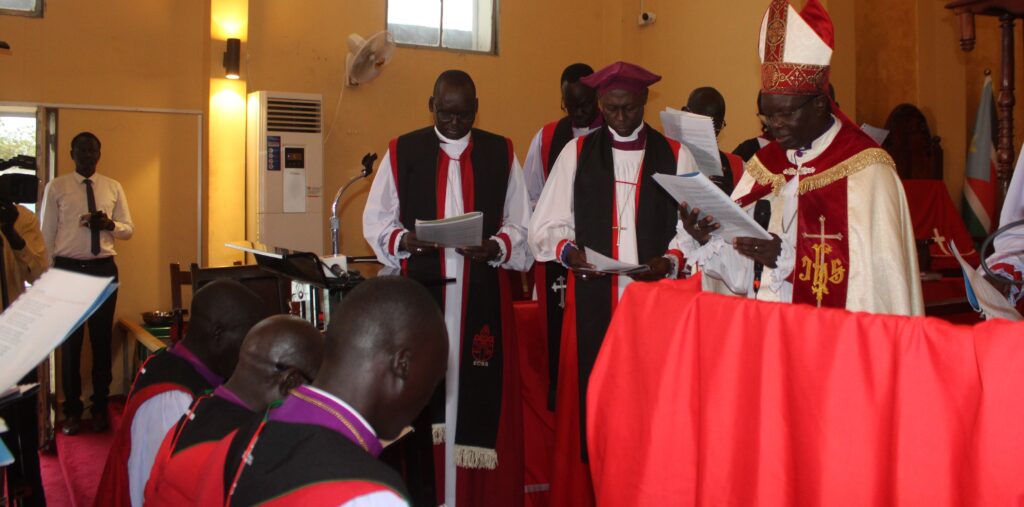The Episcopal Church of South Sudan on Sunday consecrated three suffragan bishops in a colorful ceremony held at the All Saints Cathedral in Juba.
The bishops were Abraham Matiop Deng of Jalle, Atooch, Enoch Elisama Sungunalmiyo of Gangura, Yambio and Daniel Ater Aguto of Bunagokm, Awerial.
The consecration was presided over by the Archbishop and Primate of the Episcopal Church of South Sudan, the Most Rev Dr Justin Badi Arama.
Dr Arama told journalists the suffragan bishops have been blessed to continue to educate and extend the messages of peace and love amongst the people of God.
“Today, we rejoice with thanks to God for the consecration of three suffragan bishops in the Episcopal Church of Sudan,” said Arama.
Bishop Sungunalmiyo said he was chosen by God to serve his people.
“I am very glad to be here today because I am sure that this is a calling from God, because God used to call his people at his own time. This is the time that God has called me to serve in his church. So we are very glad to be consecrated today with two of my colleagues,” he said.
The US Ambassador to South Sudan, Michael J. Adler, congratulated the newly consecrated bishops.
“It is an honour to be here. I want to congratulate the new bishops and their families. Every time I come here, I am reminded of the importance of faith to so many people in South Sudan, as it is important to so many people at home. I am reminded of the importance of peace to the people of South Sudan. May God bless you all,” said Adler. Radio Tamazuj






